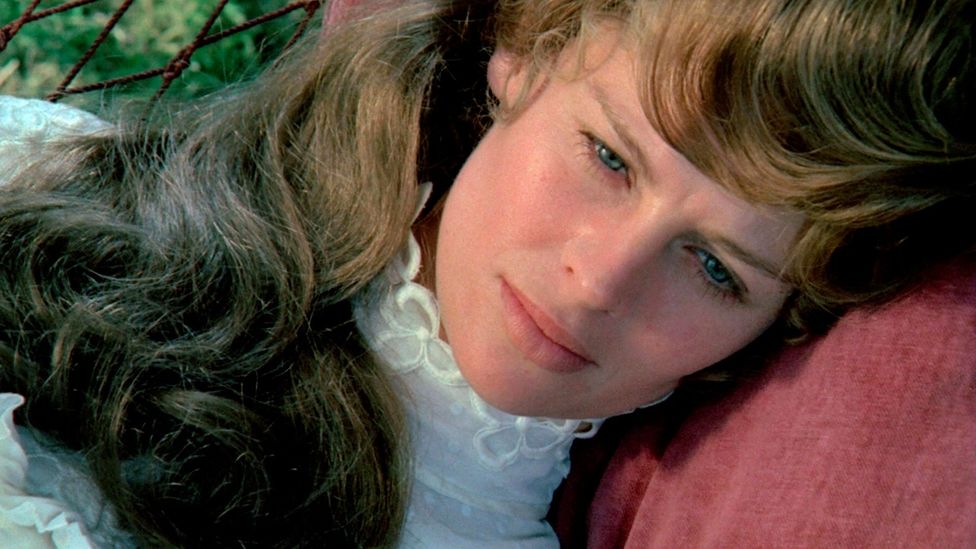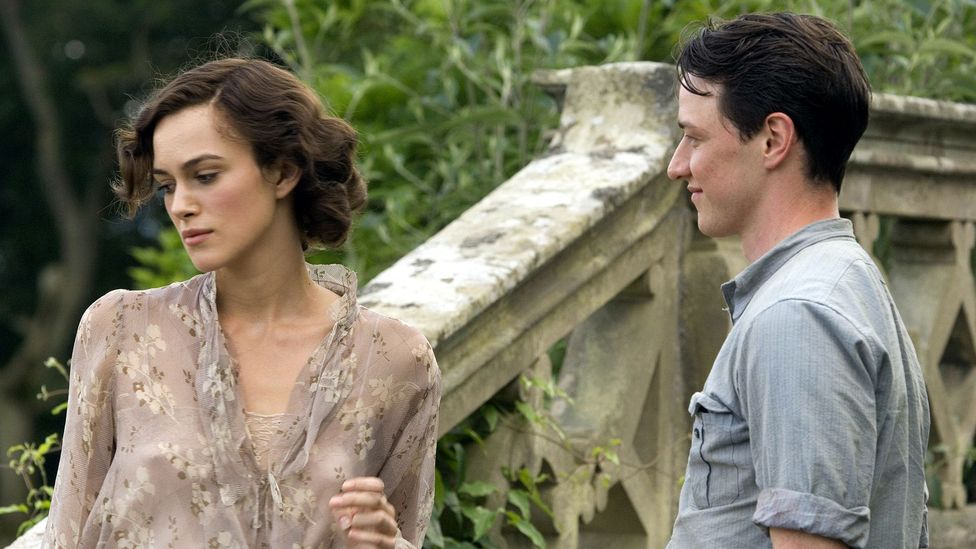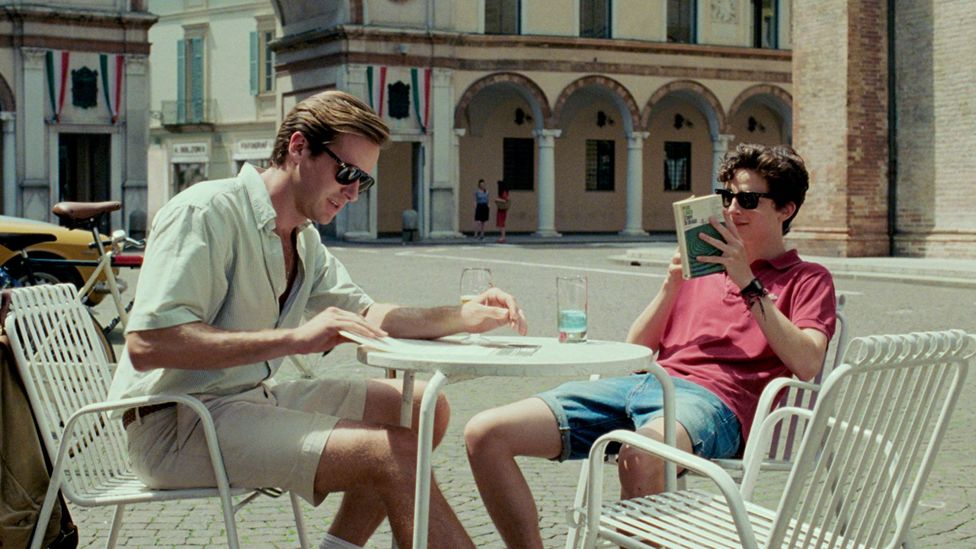It’s a season when normal rules are suspended and the temperature rises in more ways than one. So it’s no surprise that it inspires heady literature, writes Neil Armstrong.
N
Novelist Meg Rosoff has an indelible memory from a summer in the early 1970s. She was 16 and on holiday with her family on Martha’s Vineyard, off the coast of Massachusetts. She had met a boy who was also spending summer on the island, and she was mad about him.
More like this:
– Amazing novels you’ve never heard of
– What makes an iconic book cover?
– The most perfect sentences ever written
“He would just show up and then we would go off at night to these completely deserted beaches,” recalls Rosoff. “It was the most romantic thing in the entire world. I remember us swimming late one night and then lying on our backs on the sand afterwards looking up at the sky which was suddenly full of shooting stars. It was the Perseid meteor shower, which happens every year, though I didn’t know it then. It just seemed like our personal miracle.”
Elements of the experience found their way into her new book, The Great Godden, a coming-of-age love story which spans a summer holiday in England, and is being marketed as a “summer novel”.

The 1971 film version of summer classic LP Hartley’s The Go-Between starred Julie Christie as one of a pair of illicit lovers (Credit: Alamy)
There might not be a special section for the classic summer novel in bookshops but there should be because, although its precise lineaments are slightly hazy, like something seen in the distance on a dog day in August, it’s definitely identifiable as a distinct genre, characterised by particular tropes.
For a book to be a classic summer novel, key plot points must occur during that season. If it’s a long, hot summer – the sort of summer no-one thought would ever end, the sort of summer during which time seems to stand still – so much the better. Because that’s the sort of summer during which the usual rules are suspended. People do things they wouldn’t normally do. All bets are off.
Ideally, there will be a love story – maybe young love, maybe unrequited – and possibly a sexual awakening. There is often a loss of innocence.
There should be a feeling of transition; one part of life’s journey is coming to an end. Nothing will ever be the same again. Often there is a sense of unreality, “the feeling of being in a dream” as Rumer Godden said of the real-life experience that inspired her classic of the genre, The Greengage Summer. And sometimes the story is told in the form of a recollection. The narrator is looking back with a twinge of wistfulness on the events of a summer long ago, the effects of which might still be rippling out. “I think the main appeal for this kind of novel lies in its ability to play into readers’ nostalgia,” says Waterstones fiction buyer, Bea Carvalho. “Most readers can relate to a long, lonely school break, a family holiday, or a summer romance.”
Hitting the seasonal sweet spot
A summer novel doesn’t necessarily need all of these factors but it does need some. Examples might include LP Hartley’s The Go-Between, Alan Garner’s The Owl Service, or JL Carr’s A Month in the Country. “A classic example that springs to mind is Andre Aciman’s Call Me By Your Name which displays all of the tropes: the beautiful summer setting, the sexual awakening, the brilliant sense of nostalgia,” says Carvalho. Ian McEwan’s Atonement – heavily influenced by The Go-Between – sneaks in because of its first part, set on an oppressively sultry day in the middle of a heatwave.
Another instance is David Nicholls’s 2019 bestseller Sweet Sorrow, about a 16-year-old boy living in a small Southern England town who falls for his first love as they rehearse an am-dram production of Romeo and Juliet. Naturally, the course of true love does not run smooth. “When I was writing Sweet Sorrow I had a list of books that I wanted to aspire to and they all had that kind of lost summer feel,” Nicholls tells BBC Culture. “I was thinking of, for example, The Go-Between, which is a memory book – a book about looking back. And the atmosphere of Alain-Fournier’s Le Grand Meaulnes was very much in my mind; an atmosphere of regret and nostalgia, and a sense of something coming to an end.

The first half of Ian McEwan’s Atonement (here seen in its 2007 film adaptation) is memorably set in the middle of a heatwave (Credit: Alamy)
“I think built into the notion of summer is the idea of something fading, temporary, transient,” he continues. “And that’s a very poignant notion in a love story, the idea that its end is built into its beginning. A [summer] story about a couple who [have been going out] quite happily for 18 years and have a really nice time doesn’t really work. You need to have that September moment – the changing season.” However, Nicholls says the biggest influence on his novel wasn’t a book at all. “The thing that I held in my head was actually a Pulp song called David’s Last Summer which is about the last summer of your childhood. That time when you say goodbye to your friends, that sense of autumn in the air, of life changing.”
Rosoff’s The Great Godden – an echo of The Great Gatsby in the title – opens at the beginning of a family’s summer holiday at their beach house. The first-person narrator (unnamed and ungendered, although Fleabag star Andrew Scott is reading the audiobook) is the eldest of four children, and will fall for Kit Godden, the handsome boy who his or her younger sister – the 16-year-old “sex goddess” Mattie – is in love with. The story ends – apart from a brief wrapping up – as summer ends.
“The thing about summer, particularly for children but not exclusively, is that it’s a time when there is a sense of escape,” says Rosoff who now lives in London but is from Boston. “In America, school summer holidays are 10 weeks long. My family would rent a house on Martha’s Vineyard for some of that time. I do very vividly remember the feeling that summer would go on forever and that we were utterly free. There were no helicopter parents then – they couldn’t wait to get rid of us. We used to just disappear first thing in the morning and not come back until it was suppertime. Nobody cared where we were, which was just fantastic.”
She agrees with Nicholls that summer presents an author with a ready-made arc on which to hang a short, intense period of drama, that peaks during the hottest days and then dies down as the mercury falls. It’s a framing for which there is no real equivalent in any other season.
And summer comes with its own ready-made set of evocative associations. Emma Herdman, publishing director at Bloomsbury, says: “A skill I admire is a writer’s ability to convincingly transport a reader to a time and place – with summer, you can exploit all the senses to take the reader with you. How many of us are familiar with the smell of sun cream or just-cut grass; the prickle of sunburn, the feel of sand between your toes, the lush coolness of the sea, or river, or a pool on a hot day; the satisfaction of that first lick of ice cream or the crunch of an ice cube in a cold drink; the sun getting in your eyes, the light reflecting off water; the sound of a busy park while you lie with your eyes closed, of waves crashing, of someone diving into a pool?”

Andre Aciman’s Call Me By Your Name, which became a 2017 film hit, mixes a sunny Italian setting with sexual awakening and a sense of nostalgia (Credit: Alamy)
Now, as summer starts, is the perfect time to dive into one of these books. Don’t delay. It might feel now as though it’s going to last forever but, as Shakespeare reminds us, “summer’s lease hath all too short a date”.
Five all-time summer classics
The Go-Between by LP Hartley
In this mid-century British classic, the narrator remembers the hot, golden childhood summer, spent at his schoolmate’s family estate, when he helped facilitate an illicit romance.
The Greengage Summer by Rumer Godden
Two teenaged sisters of an English family holidaying in France fall in with a charming Englishman who is especially interested in the older of the pair.
The Owl Service by Alan Garner
An ancient myth threatens to repeat itself as cultures clash and adolescent tensions reach boiling point in a secluded Welsh valley.
The Magus by John Fowles
An arrogant English teacher working on a Greek island is caught up in an elaborate, theatrical game – or is it a psychological experiment?
Sag Harbor by Colson Whitehead
“There was summer, and then there was the rest of the time.” It’s 1985, and awkward, 15-year-old Benji is on vacation in the Hamptons, and intent on reinventing himself.
Love books? Join BBC Culture Book Club on Facebook, a community for literature fanatics all over the world.
If you would like to comment on this story or anything else you have seen on BBC Culture, head over to our Facebook page or message us on Twitter.
And if you liked this story, sign up for the weekly bbc.com features newsletter, called The Essential List. A handpicked selection of stories from BBC Future, Culture, Worklife and Travel, delivered to your inbox every Friday.


